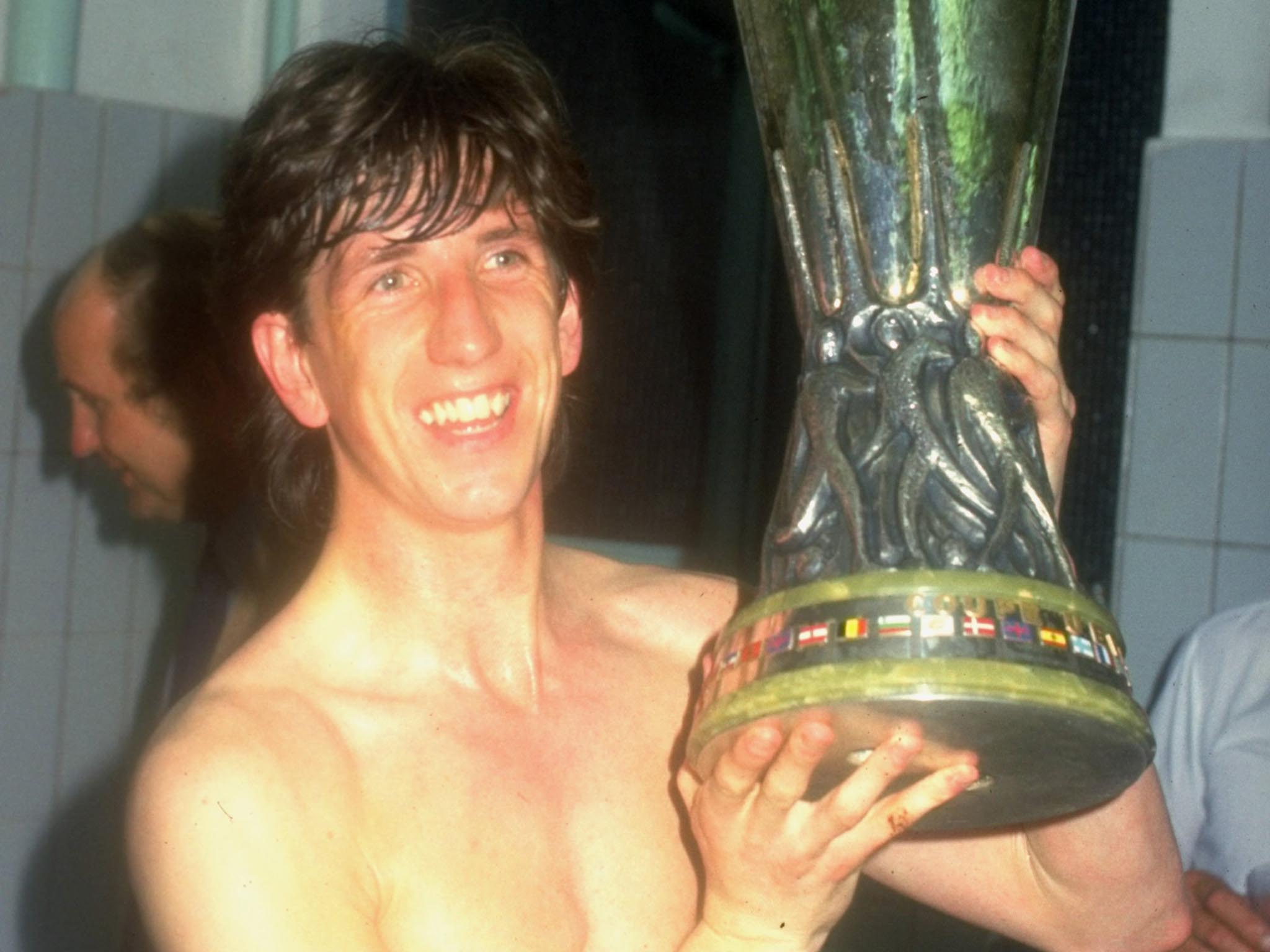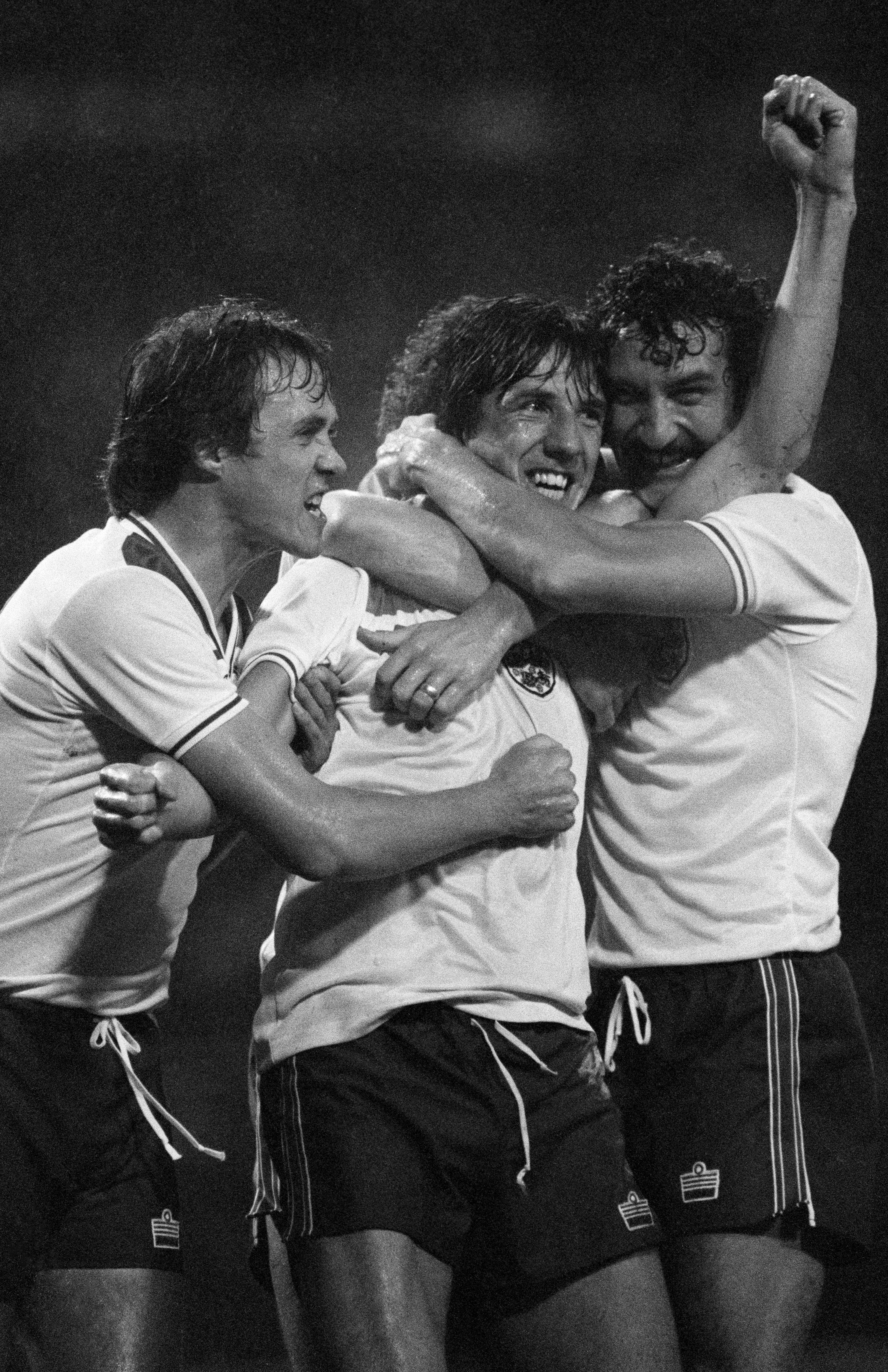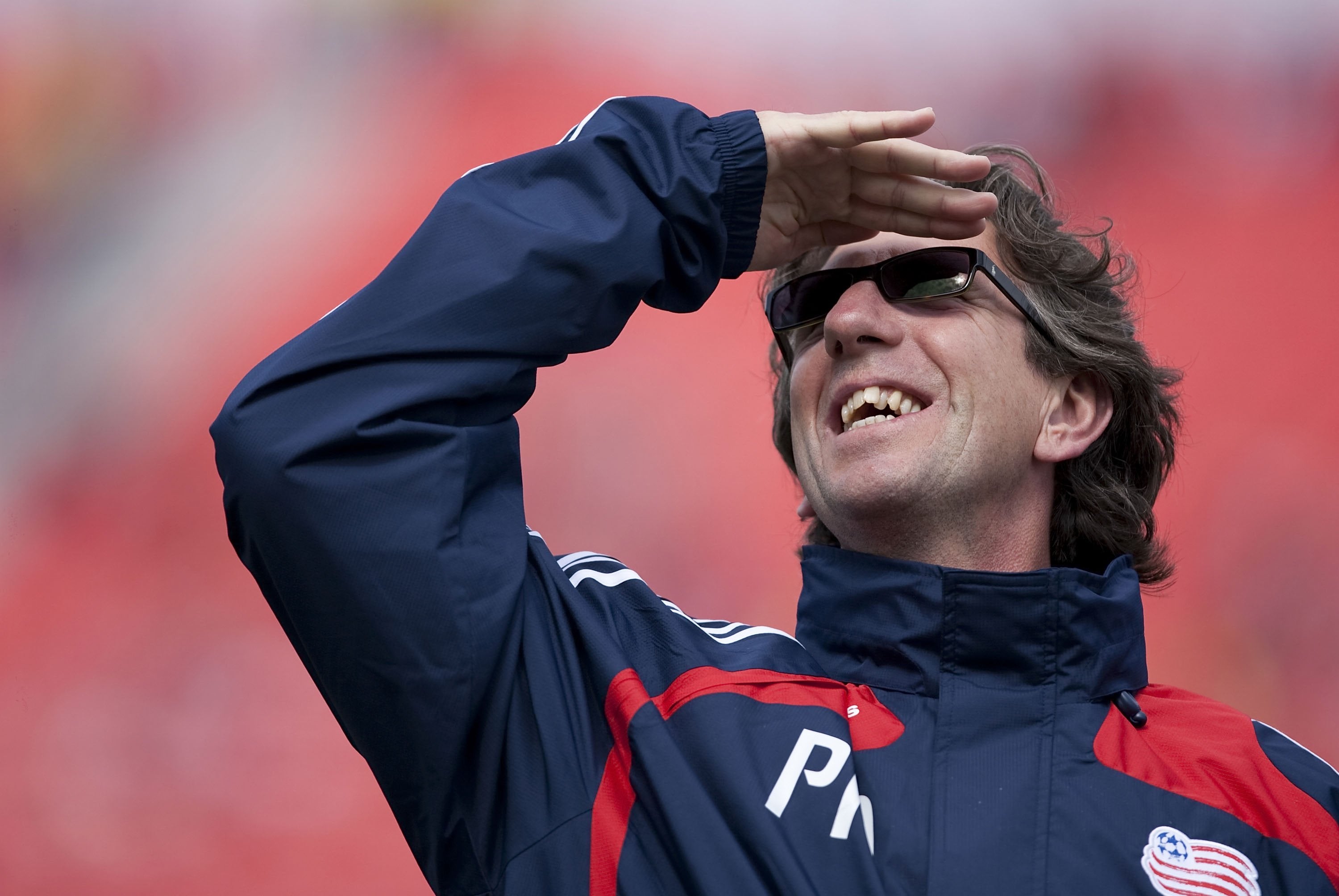Paul Mariner: Ipswich and England striker and footballer of distinction
Mariner had many highlights during his colourful career, including scoring at the 1982 World Cup

Blessed with both the drive and talent to propel himself from non-league soccer to the international stage, Paul Mariner, who has died aged 68 of brain cancer, was an ebullient cavalier of a footballer who, during the 1970s and 1980s, reigned supreme as Ipswich Town’s marksman-in-chief throughout one of the most productive periods in the Tractor Boys’ illustrious history.
Instantly recognisable with his long dark hair, this tall, rangy, deceptively combative centre-forward, while good in the air was no less inventive with the ball at his feet. Modelling himself on his schoolboy hero, Nat Lofthouse, he won 35 international caps (scoring 13 goals) and became a member of England’s 1982 World Cup squad. After retiring as a player, he stayed in the game, working as a media pundit and coach, both here and in America.
Never losing his Lancashire accent, Mariner spent his formative years growing up in the Farnworth district, near Bolton. The only son of a textile mill worker, his sporting prowess first came to the fore when a pupil at Horwich County Primary School where he captained its football team for four years. While at Horwich County Secondary School he represented local youth side Chorley St Gregory’s.
When undertaking an engineering apprenticeship in a local factory, he signed for non-league Chorley Town on £8 per week. Sadly, a broken leg during his first season at Victory Park initially halted his progress. At that time playing in midfield, it was manager Alan Hampson who successfully converted him to centre-forward. A flurry of goals quickly alerted the talent scouts.
Leading the charge was Verdi Godwin, a Southport lifeguard, who also doubled as a scout for Plymouth Argyle, then in the third tier of English football. Argyle manager Tony Waiters was initially reluctant to sign the untried 20-year-old until eventually, in the summer of 1973, he splashed out £6,000 to take Mariner to Home Park. Taking time to settle, the arrival of fellow striker, Billy Rafferty, soon saw them form a most potent scoring partnership. Their combuined output of 43 goals (with Mariner contributing 20) helped bring the club promotion at the end of the 1974-75 season.

Increasingly coveted by a growing group of top teams, in October 1976, Ipswich Town manager Bobby Robson paid Plymouth £240 to take Mariner to Portman Road and into the First Division. Over the coming seasons Robson would prove a most pivotal and influential figure in Mariner’s successful development as a player.
Making his Ipswich debut against West Bromwich Albion, he scored once in a seven-goal rout. He ended that opening campaign with 10 goals as his new club finished third in the league, five points behind champions Liverpool. The following season saw Mariner finish as the club’s top scorer. Alongside the likes of Mick Mills, George Burley, Alan Brazil, Kevin Beattie and Allan Hunter, and with the two Dutch masters, Arnold Muhren and Frans Thijssen, skilfully running midfield, Mariner’s goals – 135 in 339 appearances –helped the team become a genuine power in the land. They finished out of the top six only once throughout that decade, narrowly missing out on the title on several occasions.

Their most challenging season was 1980-81, when having surged into a commanding position in the league, an increasing toll of injuries saw them win only one of their last five games, allowing Aston Villa to pip them for the title. They did have their moments that year, as Mariner’s goals helped the club to Uefa Cup success. Against St Etienne he struck three times across both legs of the quarter-final and was again on target in the opening leg of the final, against AK Alkmaar, which Ipswich won 3-0, eventually taking the tie 5-4 on aggregate.
Three years earlier, his seven FA Cup goals had helped put his team on the road to Wembley, where they surprised many in the final by beating Arsenal 1-0. Voted man of the match, Mariner capped an outstanding all-round display by rattling the crossbar.
Within six months of the move to Suffolk, Mariner found himself part of the England squad for their World Cup qualifying game against Luxembourg. He made his international debut when coming on as a substitute in the 5-0 win, and later that year scored the first of his 13 England goals against the same opposition. Undoubtedly his key moment at this level came against Hungary at Wembley in 1981, in the game that saw the team qualify for the 1982 World Cup in Spain. Though stumbling, a fortuitous deflection meant that he was able to bundle a mishit Trevor Brooking shot into the back of the net. Another goal followed in the opening group 3-1 victory over France, which meant that he had scored in five consecutive international games (six goals in all) in which he had appeared. His final England appearance came against Romania in 1985.
Having linked up well at international level with the Arsenal forward Tony Woodcock, in February 1984 new manager Don Howe signed Mariner for the Gunners. Despite making a promising start, injuries increasingly blighted his time at Highbury. In addition to often playing in midfield, he was occasionally forced to operate as an emergency centre-half, and was limited to scoring 14 goals in his 50 league appearances..

Mariner’s time in north London came to an end when he fell out of favour with Howe’s disciplinarian replacement, George Graham. It came as little surprise when, in July 1986, he was shipped off on a free transfer to Alan Ball’s second division Portsmouth. Helping them gain promotion, he went on to score Pompey’s first goal in the top flight since 1959 when he headed in against Oxford United in an opening day 4-2 defeat. With relegation soon a reality however, having totalled 214 goals in 561 appearances in all domestic competitions, he turned his attention to foreign climes and spells in Australia, Malta and America.
Ever sociable, Mariner lived his life to the full. A particular devotee of heavy metal music, he once appeared on stage playing the bongos to accompany Deep Purple’s Ian Gillan. After a brief spell as commercial manager at Colchester United, he began his media career as an analyst with BBC Radio Lancashire. Proving a hugely popular broadcaster, particularly in America, there he also carved out a successful coaching career, most notably at the Juventus Club in Scottsdale, Arizona. Assisting Steve Nicol at New England Revolution from 2004 until 2009, that year he returned to England to briefly take charge of Plymouth Argyle. Unable to stave off relegation from the Championship, he later managed Toronto FC in Canada. In November 2020, he underwent surgery for a brain tumour.
Twice married, he is survived by three sons from his first marriage.
Paul Mariner, footballer, broadcaster and coach, born 22 May 1953, died 9 July 2021

